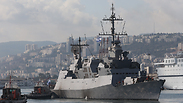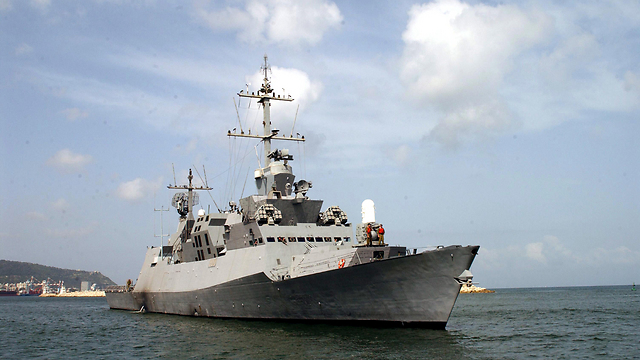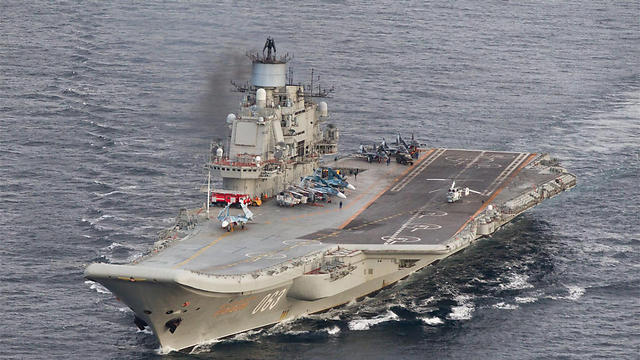
Ships from an array of countries have made their presence known in the Mediterranean over the last few months due in part to the ongoing Syrian civil war. The ships are trying to maintain civility and mutual respect but at times, the encounters can be somewhat unnerving.
Last week, a Turkish warship approached an Israeli navy missile boat in the international waters of the Mediterranean, a few kilometers from Israel's shores. Despite tensions thawing between the countries, the adopted stance in such situations is usually one of "respect them and suspect them." The sailors already had clear sight of their counterparts when all of a sudden, the Turkish ship took a stance that could have easily been interpreted as threatening. However, after a few minutes of tense radio silence, the Turks continued on their way, friction averted.
Missile boat sailors have grown accustomed to such occurrences. Over the last few months, they have found themselves facing a growing number of "presence displays" with dozens of warships, among them destroyers and aircraft carriers of the world's powers, which are sailing along the shores of Lebanon and Syria. These displays come as a result of the increasing Russian and American involvement in the Syrian civil war.
The increased presence of Israeli missile boats amidst the American, Russian, French, Turkish, British, Italian and Greek warships is intentional. A lack of presence in these crucial times, in an area that is of strategic significance to Israel, would make it that much harder to later return to force.
"Over the last year and a half, we started executing an ancient role of the navy, existing from the 19th century, 'The Gun Boat Diplomacy.' We sail those areas to maintain our freedom of navigation," explained a senior naval officer to Ynet.
"You need to instill the understanding that you are present. There is no violent altercation but we have witnessed threatening maneuvers between the Turks and the Russians, for instance, and the radio chatter, which is usually polite, can also sometimes turn impolite… these regions see many power struggles, aiming to show who's in charge."
Almost every country that sends its ships to the Mediterranean's back yard, near Israel, follows maritime diplomacy to pass messages, which are at times aggressive, to other countries. The method: the ships' conduct at sea; pulling close to other vessels or barging in on their route.
"Not an hour passes without the International Regulations for Preventing Collisions at Sea being put to the test," said the naval officer. Regarding the Israeli navy, it is not just about displaying its presence, there are other no less important missions, like the collection of intel."
In this manner, the Syrian civil war and the Houthi rebels fiasco in Yemen, alongside the renewed tensions between Tehran and Washington, have made for a very tumultuous maritime arena, not only in the Mediterranean: US President Donald Trump ordered a week ago to position an American destroyer in a threatening manner in the Bab-el-Mandeb strait near Yemen as the Houthis turned the area into the private playground of Iranian industry.



















